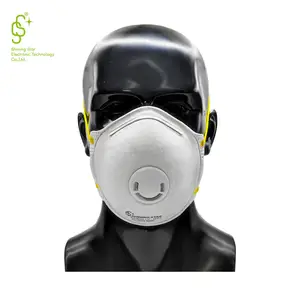
Factory Direct Sale Protection Easy To Clean Spray Paint Special Saftey Dust Face Maskes


Niosh Approved Valved Dust Respirator Cup Shape Particulate Respirator N95 Face Dust Mask With Filter










Chemical masks are essential protective gear designed to provide a barrier against hazardous substances in various environments. These masks are commonly utilized in industries where workers are exposed to chemical vapors, dust, or other potentially harmful particulates. The importance of selecting an appropriate chemical mask cannot be overstated, as it directly relates to the safety and health of the user.
There are several types of chemical masks, each tailored for specific applications and levels of exposure. Respirators and full-face masks offer different levels of protection, with some designed for single-use, while others are reusable with replaceable filters. The application of these masks spans across sectors, including manufacturing, pharmaceuticals, and emergency response, where the presence of chemicals is a constant risk.
The features of a chemical mask may include adjustable straps, exhalation valves, and a snug fit to ensure a secure seal. Materials range from silicone for comfort to robust plastics for durability. The choice of material affects the mask's resistance to chemicals and its overall longevity. It is crucial to select a mask with materials compatible with the specific chemicals one might encounter.
Using a chemical mask can significantly reduce the risk of inhaling toxic substances, which can lead to chronic health issues or acute injuries. These masks are designed to filter out harmful particles, providing clean air to the user. The advantages of wearing a chemical mask include maintaining a safe working environment and complying with health and safety regulations.
When choosing a chemical mask, it is vital to consider the specific needs of the user, including the type of chemicals handled and the environment in which the mask will be used. Factors such as the mask's fit, filter type, and ease of breathing while wearing the mask should also be taken into account to ensure maximum protection and comfort.
Proper maintenance is essential for the effectiveness of a chemical mask. This includes regular inspection, cleaning, and replacement of parts like filters and valves as needed. Users should follow the manufacturer's guidelines for care to ensure the mask remains in good working condition and continues to provide reliable protection.